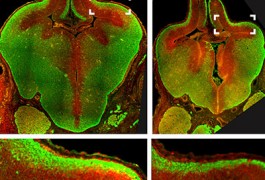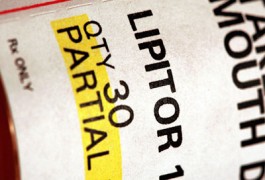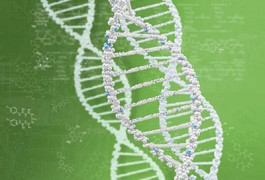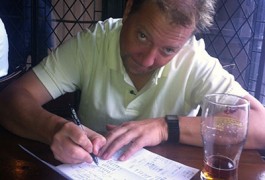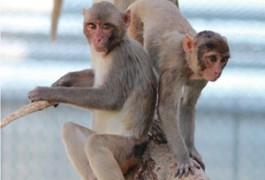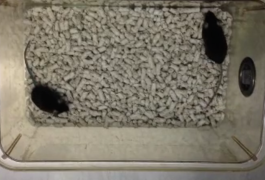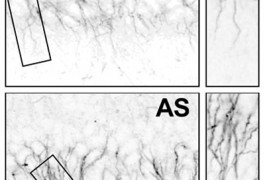Studies on 22q11.2 region link genes, circuits, behavior
Deletion of a gene in 22q11.2, a chromosomal region linked to autism and schizophrenia, leads to small head size in mice, according to research presented Saturday at the 2013 Society for Neuroscience annual meeting in San Diego. Mice with a large deletion in this region show disrupted brain connections, and struggle with learning and memory.

